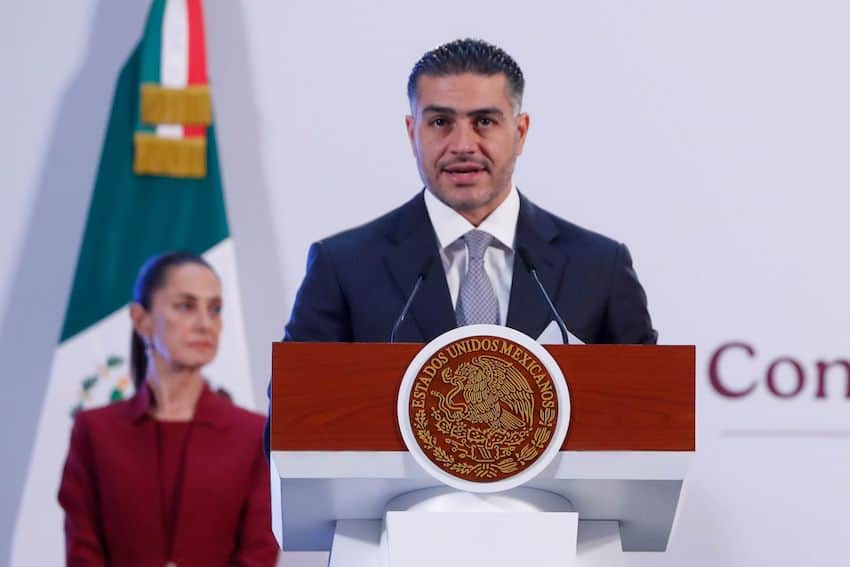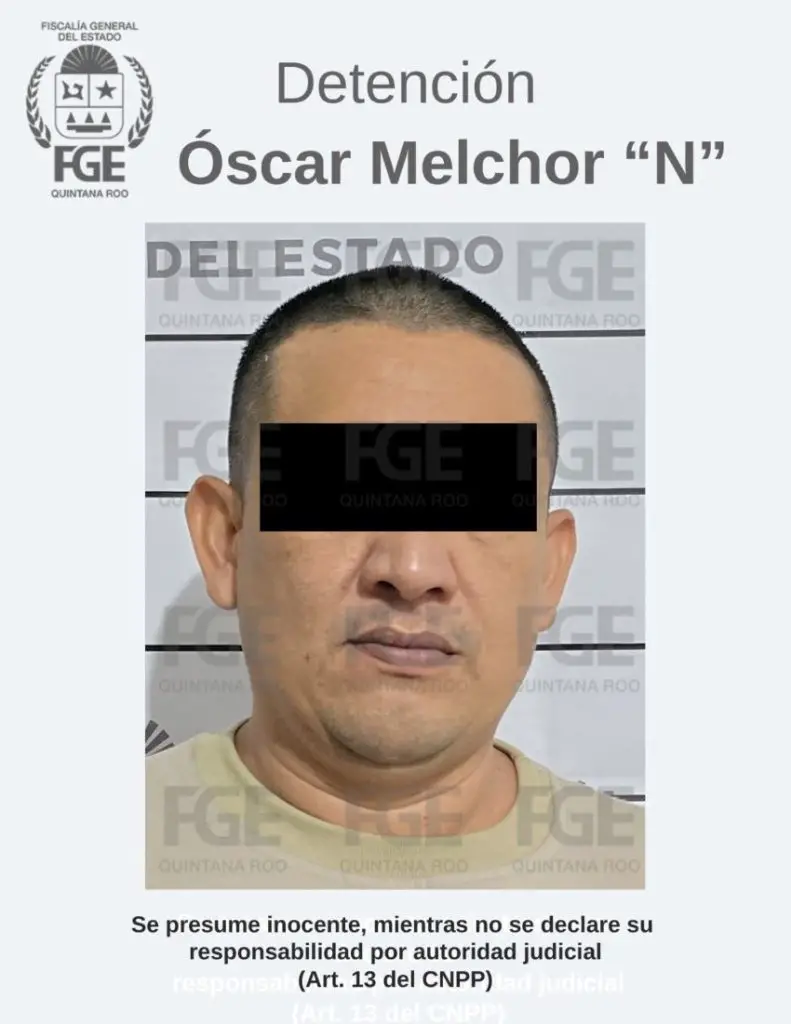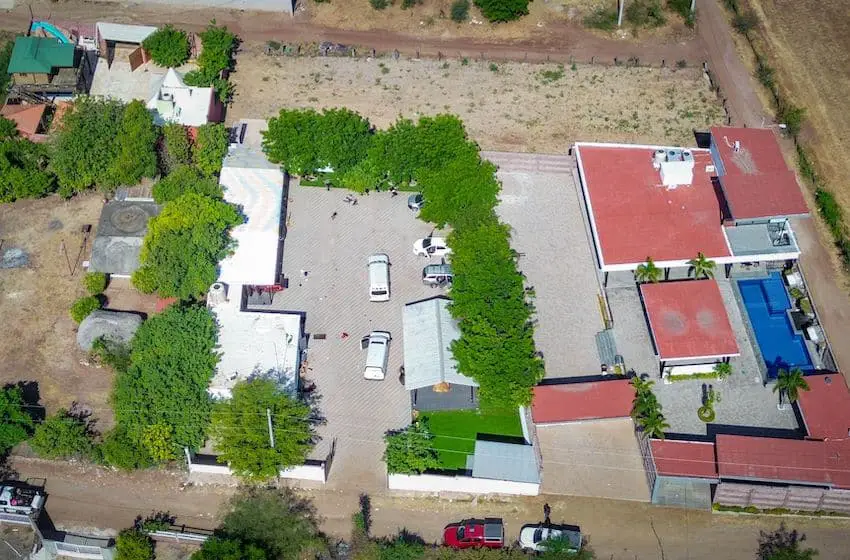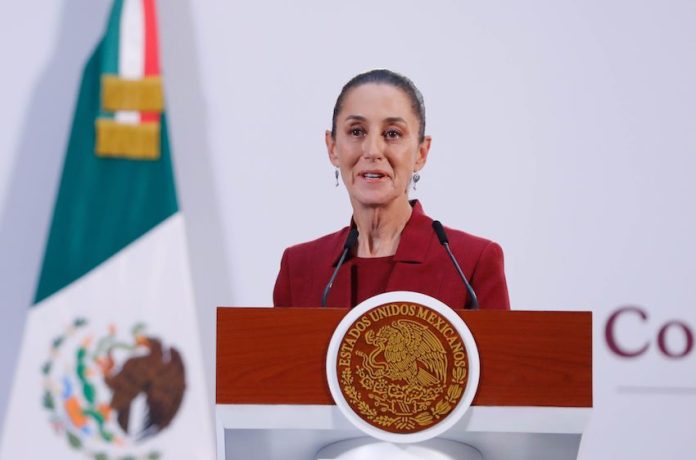Federal security officials on Tuesday highlighted a decline in homicides and more than 800 arrests since President Claudia Sheinbaum took office on Oct. 1.
National Public Security System (SNSP) chief Marcela Figueroa Franco and Security Minister Omar García Harfuch both presented data at the morning press conference of Sheinbaum, who was sworn in as Mexico’s first female president exactly four weeks ago.

They attempted to portray a positive picture of Mexico’s security situation, but the reality remains that various parts of the country are plagued by high levels of violent crime.
The security update on Tuesday came three weeks after the new federal government presented its national security strategy, based on four key pillars, including the consolidation of the National Guard and the strengthening of intelligence gathering.
An average of 75 homicides per day in October
Figueroa, a former Mexico City security official, said that preliminary data shows that there was an average of 75.3 homicides between Oct. 1 and Oct. 28.
That means there have been more than 2,100 murders in Mexico since Sheinbaum was sworn in.
Figueroa highlighted that the average daily murder rate this month is the lowest for any October since 2017.
She also noted that the daily murder rate this year — an average of 82.32 murders per day between Jan. 1 and Oct. 28 — is more than 18% lower than the daily rate in both 2018 —the year former president Enrique Peña Nieto’s term ended — and 2019, which was ex-president Andrés Manuel López Obrador’s first full year in office.
The daily murder rate so far this year is 3.26% lower than the rate across 2023. The rate during Sheinbaum’s first 28 days in office is 8.5% lower than the rate for the year to date.
Guanajuato remains Mexico’s most violent state
There have been almost 25,000 homicides in Mexico so far this year, according to the data presented by Figueroa on Tuesday morning.
The SNSP chief noted that 49.8% of the murders — a total of 12,400 — occurred in just seven states.

The seven states with the highest number of homicides between Jan. 1 and Oct. 28 were:
- Guanajuato: 2,562 murders (10.3% of the total)
- Baja California: 1,982 murders (8%)
- México state: 1,919 murders (7.7%)
- Chihuahua: 1,660 murders (6.7%)
- Jalisco: 1,514 murders (6.1%)
- Guerrero: 1,398 murders (5.6%)
- Nuevo León: 1,365 murders (5.5%)
Most of the violence in Guanajauto — Mexico’s most violent state in recent years — is the result of confrontations between criminal groups, in particular the Jalisco New Generation Cartel (CJNG) and the Santa Rosa de Lima Cartel.
Among the most violent municipalities in the state are Celaya and Salamanca. Twelve bodies were found in Salamanca on Oct. 3, two days after four men were killed in an armed attack in the same city.
Last Thursday, three police officers were injured when two car bombs were almost simultaneously detonated near Public Security Ministry buildings in the Guanajuato municipalities of Acámbaro and Jerécuaro.
In addition to Guanajuato, various other Mexican states are currently plagued by turf wars between rival criminal groups or battles between competing factions within the same cartel, as is the case in Sinaloa.
Figueroa acknowledged Tuesday that homicides have increased in Sinaloa in September and October as factions of the Sinaloa Cartel — “Los Mayos” and “Los Chapos” — engage in a fierce battle in Culiacán and other parts of the state.
The long-running battle intensified after the alleged kidnapping and subsequent arrest in the U.S. of Sinaloa Cartel leader Ismael “El Mayo” Zambada in late July by one of the sons of El Mayo’s predecessor, Joaquin “El Chapo” Guzmán.
824 people arrested for ‘high-impact crimes’ this month
García Harfuch, a former Mexico City security minister who survived an armed attack in 2020, said that the new federal security cabinet has “developed lines of action based on the strengthening of intelligence and investigation tasks and close inter-institutional coordination.”
The objective, he said, is to “build peace and combat impunity in our country.”

García said that 824 people were arrested in the first 28 days of the Sheinbaum administration for having allegedly committed “high-impact crimes” such as murder and kidnapping.
The security minister also highlighted that authorities have seized 834 firearms, 33,800 kilograms of “different kinds of drugs” and more than 46,000 fentanyl pills this month.
He noted that the Mexican Navy seized more than 8 tonnes of cocaine in a single drug bust at sea earlier this month.
García spoke about some of the most significant arrests authorities have made in October, including the detention last week of Edwin Antonio Rubio López, an alleged Sinaloa Cartel leader whom the security minister described as “one of the main generators of violence in Culiacán.”
‘We’ve made progress in the consolidation of the National Guard’
García told reporters that the National Guard — a security force created by the previous federal government and recently put under military control — has played a major role in the new government’s security achievements in its first four weeks.
“The National Guard has contributed in a very significant way in these first weeks,” he said, noting that it has seized drugs, recovered vehicles used by criminals, confiscated firearms and arrested “generators of violence.”
“We’ve made progress in the consolidation of the National Guard and in its surveillance and reconnaissance work,” the security minister also said.
There are 133,000 members of the National Guard deployed across all 32 federal entities, García said. They are patrolling transport infrastructure, including highways, and have a presence in high-crime municipalities, he said.
National Guard personnel have also increased their “social proximity tasks in order to be close to the citizenry,” García said, highlighting that they provided assistance to residents of Acapulco affected by the recent passage of Hurricane John.

Major security incidents in Sheinbaum’s first four weeks as president
Sheinbaum faces a wide range of security challenges, including the ongoing conflict in Sinaloa, the dire situation in parts of Guanajuato, a turf war between the Sinaloa Cartel and the CJNG in the southern border region of Chiapas, and the nationwide fight against the manufacture and trafficking of fentanyl and other illicit drugs.
Like former president López Obrador — whose six-year term was the most violent in Mexican history — and other former presidents, Sheinbaum is using the military in the fight against crime. And like her predecessor, the new president has pledged to avoid direct violent confrontation with criminals whenever possible.
However, on Sheinbaum’s watch, the Mexican army has already killed not only alleged criminals but also migrants and innocent bystanders.
- Six migrants died on Oct. 1 — the day Sheinbaum was sworn in — after the Mexican Army opened fire on vehicles that attempted to evade military personnel carrying out patrols in Chiapas.
- On Oct. 11 and 12, three citizens, including a nurse and an eight-year-old girl, were killed in the crossfire of shootouts in Nuevo Laredo between security forces and suspected criminals. One person was killed by soldiers and two by National Guard troops.
- Mexican soldiers killed 19 suspected members of the Sinaloa Cartel after they were attacked by more than 30 gunmen near Culiacán on Oct. 22. The Defense Ministry said that the troops came under fire in a rural area 11 kilometers east of Culiacán while arresting “alleged criminal cell boss” Edwin Antonio Rubio López. No soldiers were killed or wounded.
The Associated Press reported that the killing of the 19 drug cartel suspects in “a lopsided encounter” in which soldiers “suffered not a scratch themselves” has “awakened memories of past human rights abuses, like a 2014 incident in which soldiers killed about a dozen cartel suspects after they had surrendered.”
However, no evidence has emerged to indicate that the killings occurred after the alleged criminals had surrendered, or had been arrested and disarmed. The confrontation remains under investigation.
Mexico News Daily
